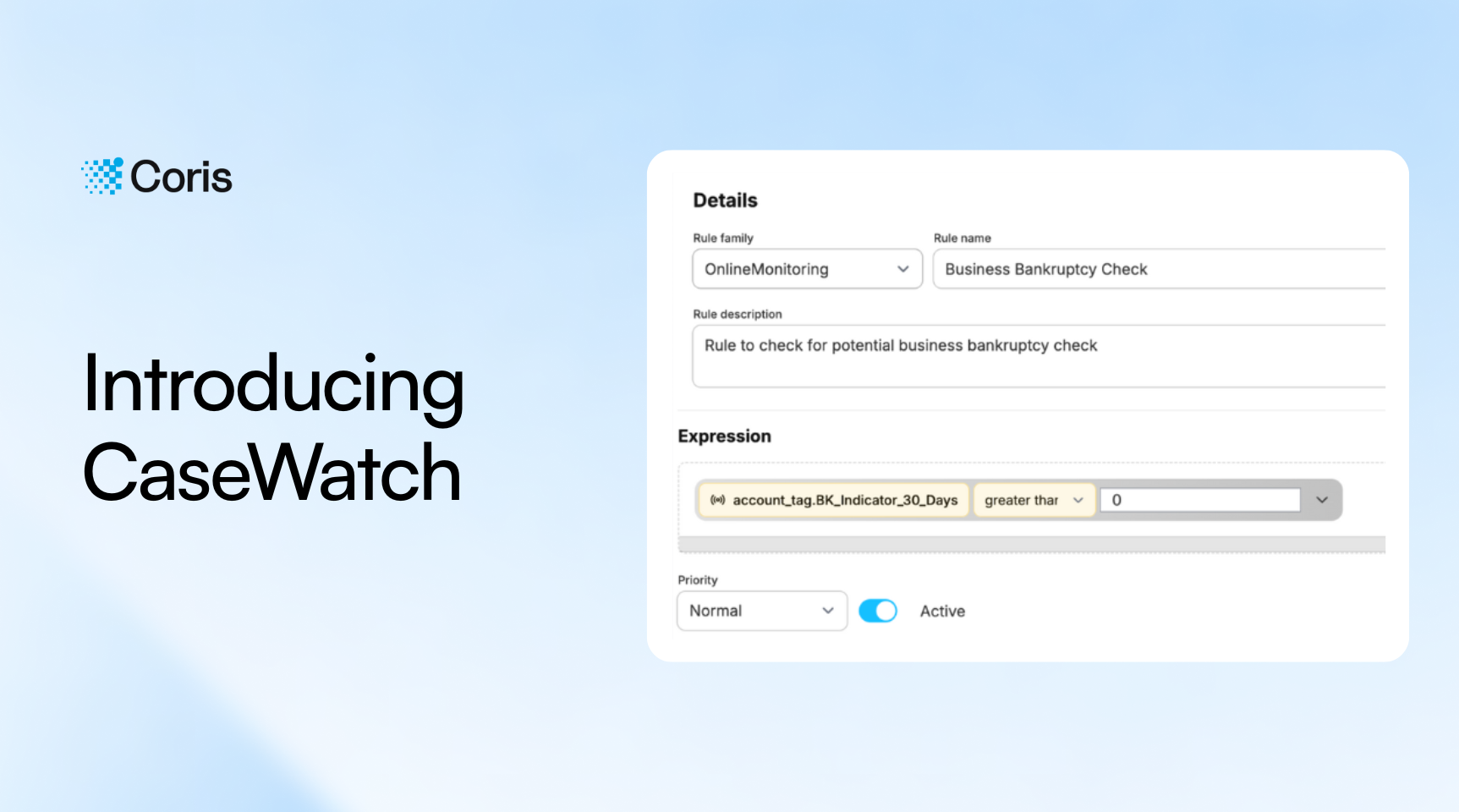Launching Slack Integration
Connect Coris and Slack to deliver real-time risk alerts and structured requests where teams already work, reducing manual handoffs and missed communication.
Coris launches CaseWatch, an AI-powered tool that alerts risk teams to federal bankruptcies and malpractice lawsuits tied to merchants, reducing exposure and manual research time.

Today, we’re excited to introduce CaseWatch to the Coris platform. Now, risk teams can automatically receive alerts on federal bankruptcy filings and state malpractice lawsuits tied to merchants in their portfolio.
By automating this manual check using LLMs and proprietary logic, CaseWatch reduces merchant exposure on an ongoing basis, and drive down losses.
Read on to learn more, and reach out if you’d like to get started today.
We speak with countless risk teams every week on their most intractable pain points. One of the largest challenges risk analysts currently face is the lack of visibility into business performance in a scalable, proactive way.
What do we mean by this? Companies often service hundreds, if not thousands of merchants in their portfolio. They lack an automated method for understanding how merchants are performing, and often only learn about warning signs once it’s too late (e.g., when chargebacks skyrocket or when a creditor reaches out).
Malpractice lawsuits and bankruptcy filings can be useful leading indicators of a merchant in trouble. For example, a software platform that extends credit to medspas can curb or pause services to the business if it notices a spike in malpractice lawsuits. Currently, risk teams obtain these filings by manually entering each merchant’s name in a search engine. This idiosyncratic approach doesn’t scale to accommodate the large merchant portfolios that companies are serving.
When our customers shared how much time they spent on manual court case searches, we started investigating opportunities to automate this process.
CaseWatch uses LLMs and proprietary matching logic to automatically surface relevant lawsuits tied to businesses in a risk team’s portfolio. These insights include the name of the business and specific text related to the filing (negligence, dismissal, malpractice, etc.).
If you’re using Stripe or Adyen:
If you’re not using Stripe or Adyen but are monitoring merchants for other risk signals inside the Coris platform (e.g., Google or Yelp reviews), you’re in luck! You can simply add CaseWatch as an additional rule, and this will generate alerts when a merchant is tied to a relevant filing.
Coris is on a mission to automate SMB risk management and make manual searches a thing of the past. CaseWatch is the latest demonstration of that vision.
Reach out if you’d like to learn more, or if you have another manual risk process you’d like us to automate.